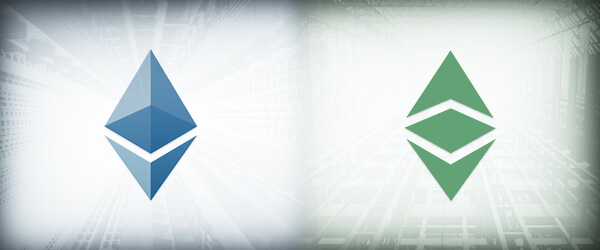Bitcoin Cash Hard Forks on May 15, Huge Upgrades to be Added

Bitcoin Cash will upgrade its system Thursday next week with a hard fork, in a huge step toward becoming the digital transactional currency of tomorrow. The upgrade, dubbed Bitcoin Adjustable Blocksize Cap, will pose a threat to currency giants Bitcoin Core (BTC) and smart contracts platform Ethereum.
In line with Satoshi Nakamoto’s vision of Bitcoin as “a peer-to-peer electronic cash system,” the upcoming hard fork will increase both block size limit by quarter-fold and data carrier size to 220bytes. These changes after the Bitcoin Cash hard fork will decrease both transaction fees and transaction time.
This upgrade will also add a number of Bitcoin script operation codes and will reactivate some that were earlier disabled in the legacy Bitcoin blockchain.
The hard fork will commence at around 16:00 UTC following the Median Time Past method. On their website, the Bitcoin ABC team explains how the MTP method works:
“The upgrade… [activates] on the MTP time of 1526400000 (Tue May 15 16:00:00 UTC, 2018). When the median timestamp of the most recent 11 blocks is equal to, or greater than 1526400000, then the new consensus rules shall apply to the next block. The exact time of activation depends on the time this block is found.”
The team advises the participating nodes on the Bitcoin Cash network to upgrade their software or other compatible software to Bitcoin ABC 0.17.1 before May 15.
Maximum Block Size Changes
The upgrade will bring the maximum block size limit of the Bitcoin Cash blockchain from 8MB to 32MB. As a result, more transactions can fit in one block. This move will lessen the competition among transaction requests to fit in the latest block.
A part of the online community questions the necessity of this upgrade, since transactions in the Bitcoin Cash network rarely fill half of the block. The block size during the first days of May ranged from 61KB to 99KB. But this proactive move will ensure Bitcoin Cash can offer cheaper fees and faster transaction speed to users in the future.
The upgrade is part of the ongoing race between Bitcoin Cash and Bitcoin Core to be the premier digital transactional currency. Bitcoin Core, for its part, remained with the 1MB block size limit. It integrated Segregated Witness (SegWit) into its network. SegWit removed the signature data from the block, freeing up space for more transactions. Bitcoin Core’s transaction fees dropped lower because of SegWit, but they are still more expensive than those of Bitcoin Cash.
Currently, Bitcoin Core’s average transactions dwarf Bitcoin Cash’s. But developers expect the upcoming improvements to attract more parties into the Bitcoin Cash network.
Smart Contracts in the Future?
Next week’s upgrade will also increase the data carrier size from the current 40B to 220B. The added size will allow more data to be stored on the blockchain. This change will make smart contracts on the Bitcoin Cash blockchain possible.
The move suggests Bitcoin Cash’s entry into the world of smart contracts, currently led by Ethereum. Ethereum uses the Ethereum Virtual Machine (EVM) to run smart contracts on their blockchain. Users pay for computing power with Ether, Ethereum’s currency. The EVM then will allocate computing power from the nodes on the Ethereum blockchain to run their contracts, equivalent to the amount of Ether they are paid with.
If Bitcoin Cash does enter the world of smart contracts, the value of its currency could significantly increase. Bitcoin Cash could become more useful than Ether. That meaning Bitcoin Cash can be used both as electronic cash between two users and as payment to run their smart contracts.
Bitcoin Cash already has a successful history of hard forking. The first, yet the only, hard fork last Nov. 13, 2017 fixed the blockhain’s Difficulty Adjustment Algorithm.
The crypto’s recent impressive performance can be attributed to rising interest in the scheduled May 15 fork. Bitfinex showed that BCH/USD jumped by nine percent in the last 24 hours as of 15:40 UTC+7.










